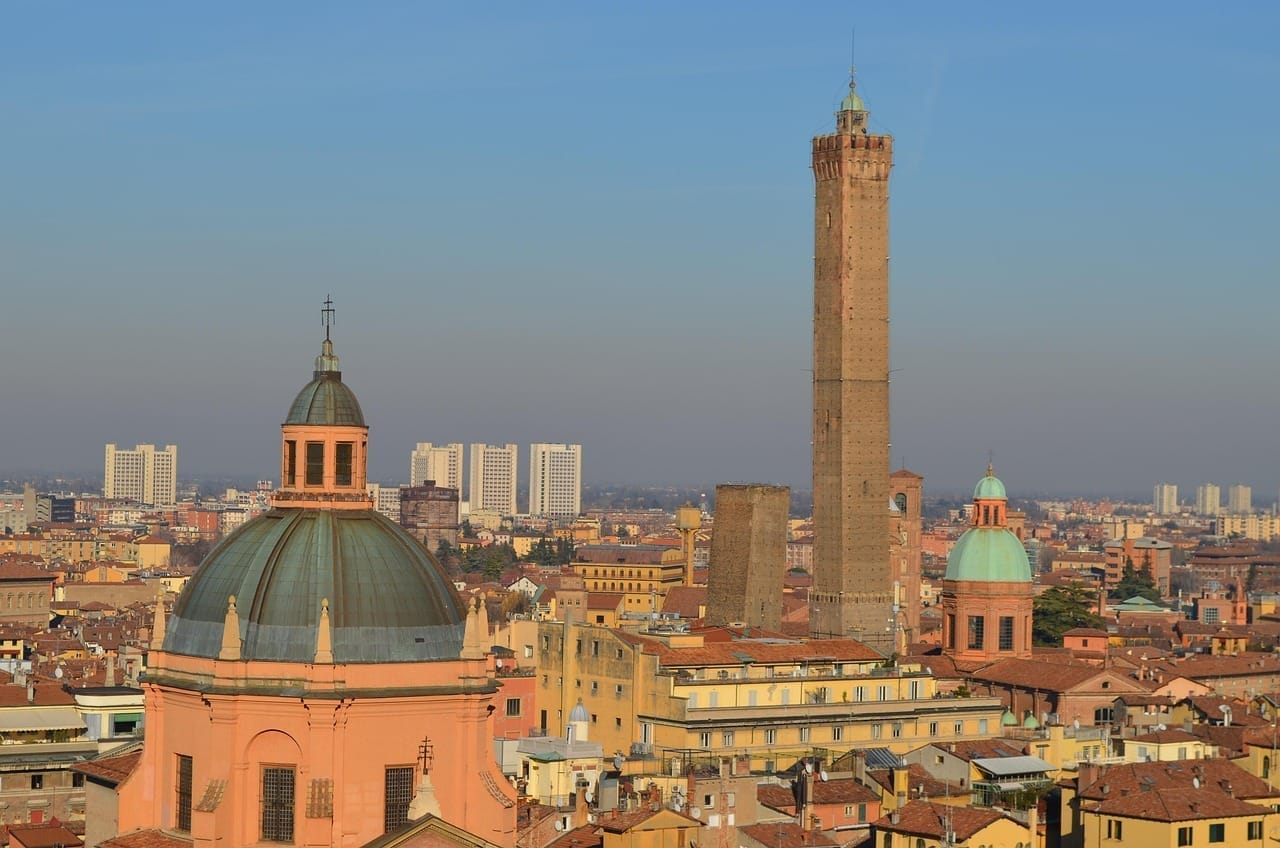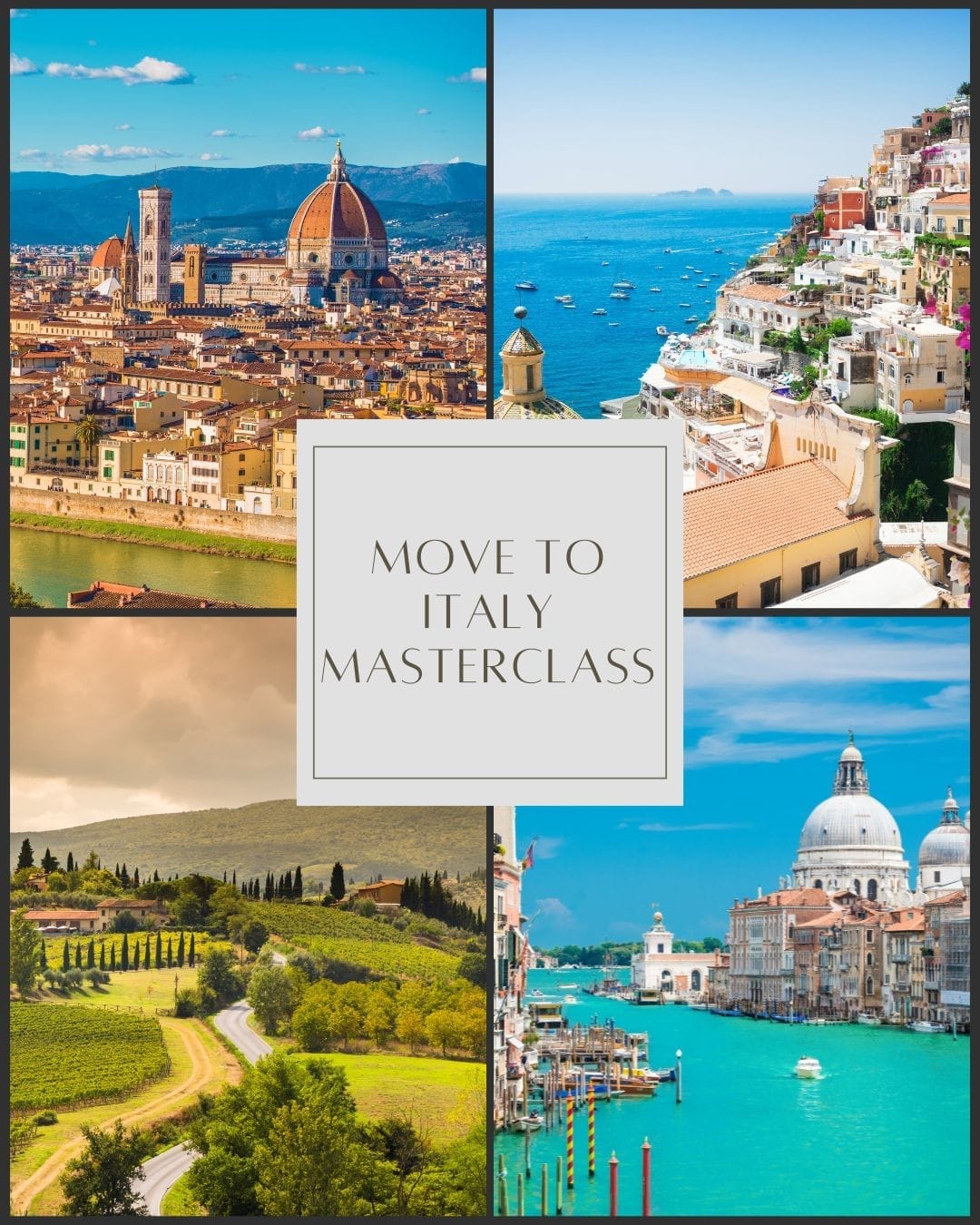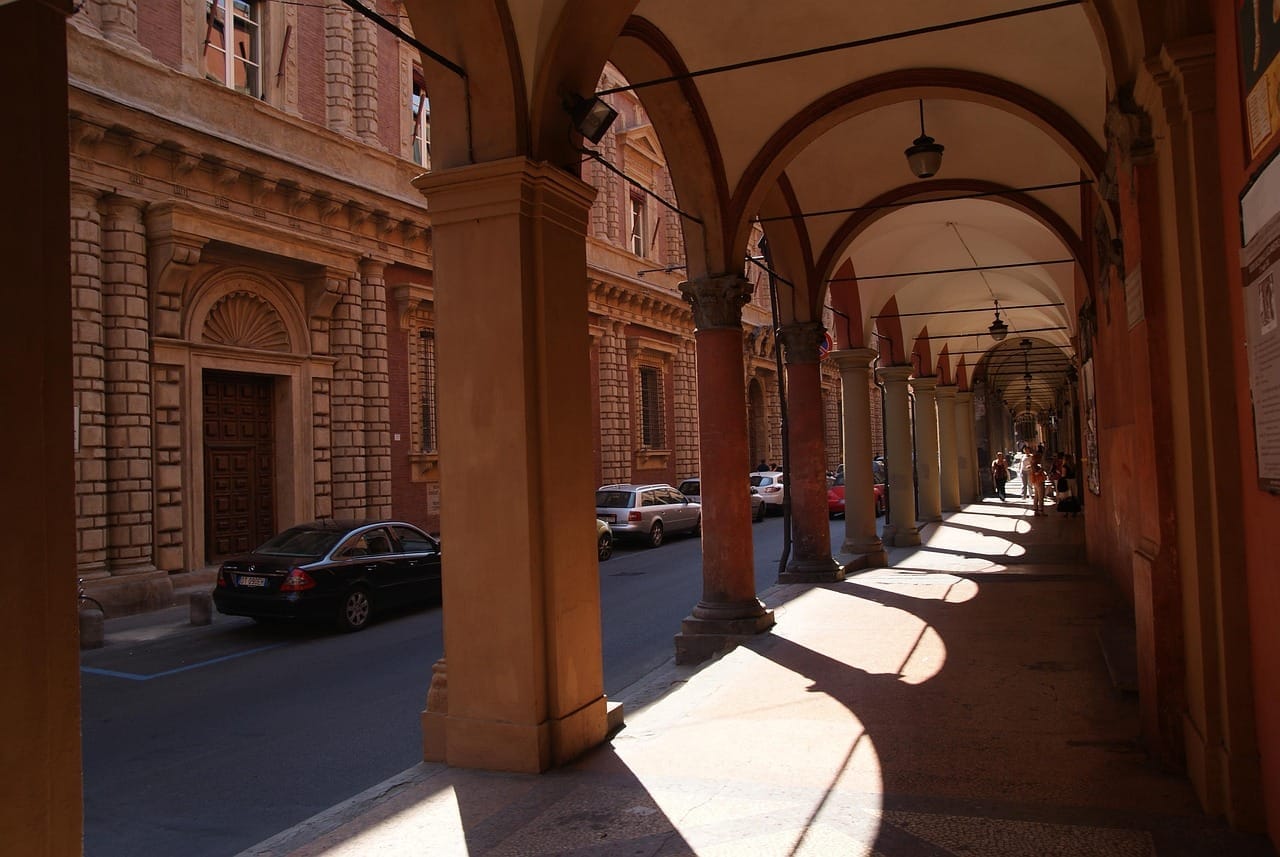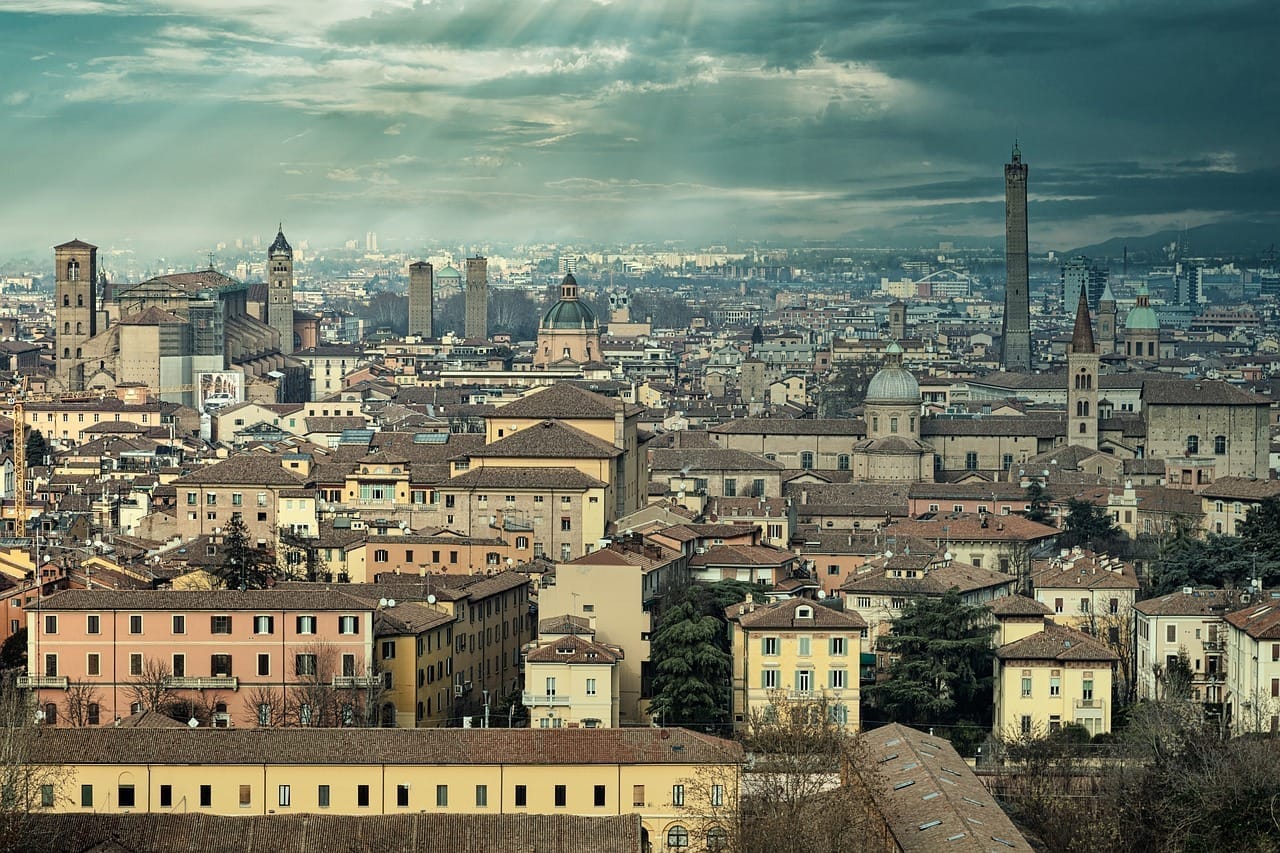
How Moving to Bologna Rekindled My Love for Cooking

I came to Bologna broken. Not visibly so, widowhood doesn't always announce itself with tears or trembling hands, but the kind of broken that manifests in the quiet moments, in the kitchen where joy once lived, now reduced to routine. For forty years, I'd cooked with passion, transforming ingredients into stories, flavors into memories. But after losing Margaret, the stove became a stranger. Food lost its poetry.
Then I stepped off the train at Bologna Centrale, sixty-two years old with nothing but two suitcases and a hollow hope that geography might heal what grief had carved away. What I discovered in the shadow of those burnt-orange porticoes wasn't just a new home, it was the resurrection of everything I thought I'd buried with my wife.
The Market That Whispered My Name
On my first morning in Bologna, jet-lagged and disoriented, I wandered into Mercato di Mezzo purely by accident. I'd been searching for coffee, something familiar to anchor me to this strange new reality. Instead, I found salvation wrapped in prosciutto.
The market attacked my senses with the gentle violence of belonging. Parmigiano Reggiano wheels, taller than children, exhaled their sharp, crystalline perfume. Mortadella, sliced thick as steaks, glistened pink and white like edible marble. Vendors called out in dialect, their voices rough as sandpaper but warm as rising dough. I stood there, surrounded by strangers speaking words I couldn't yet decipher, and for the first time in eighteen months, I felt hungry.
Not the mechanical hunger that drives you to microwave dinners and solitary sandwiches. This was the old hunger, the one that makes your hands itch to chop and your mind race with combinations. The hunger that transforms shopping into poetry.
An elderly woman behind a vegetable stall caught my eye, lingering on her tomatoes—San Marzanos, still vine-clinging, their skin stretched tight over flesh that promised sweetness and acid in perfect balance. She said something in Italian, saw my confusion, then simply handed me one. "Assaggia," she gestured. Taste.
I bit into it like an apple, juice running down my chin, seeds catching in my beard. The flavor exploded; earth, sun, and summer storms all compressed into one perfect fruit. The woman smiled, knowing. She'd seen men like me before, I realized. Men who'd forgotten what real food tastes like. Men who needed reminding that pleasure still exists in this world.
The Ritual of Fresh Pasta
In Halifax, I'd made pasta occasionally, on special occasions and for impressive dinner parties, the kind of cooking designed to demonstrate skill rather than feed the soul. In Bologna, pasta isn't performance. It's prayer.
My neighbor, Signora Alberti, a woman of perhaps seventy with hands that could strangle chickens but shaped dough like a sculptor, took pity on me after hearing me murder a simple aglio e olio. She appeared at my door one Tuesday morning, arms crossed, and announced in broken English that we were making tagliatelle.
"No machine," she declared, sweeping my pasta roller into a cabinet like a parent confiscating contraband. "Mani. Hands."
We made a well in the flour, 00 grade, fine as baby powder, she insisted, nothing else would do. Six eggs, their yolks orange as October marigolds from the chickens pecking in the courtyard below. My hands remembered before my mind did, fingers incorporating flour into egg with the rhythm Margaret and I once shared in our kitchen, the silent choreography of two people who know each other's movements.
Signora Alberti watched as my hands slowed, watched my eyes grow distant. She placed her weathered palm over mine and squeezed. "La cucina," she said softly, "she remembers for us when we forget." The kitchen remembers.
We kneaded in silence after that, the dough transforming under our combined effort from shaggy and resistant to silk-smooth and elastic. When we rolled it by hand, with her nonna's mattarello —a rolling pin worn concave by generations —the sheet became translucent, thin enough to read a newspaper through, though Signora Alberti assured me that a newspaper would ruin the flavor.
The tagliatelle, cut by hand into ribbons that curled like wood shavings, cooked in exactly ninety seconds. We dressed them simply: butter, Parmigiano, and a crack of black pepper. The first bite made me weep. Not from sadness, but from recognition. This was what I'd been missing, not elaborate techniques or complex flavors, but the meditation of making, the transformation of flour and eggs and time into something that feeds more than just the body.

Ready to make your own move to Italy? Our
online course provides comprehensive guidance on visas, housing, healthcare, schools, and everything else you need to know for a successful family relocation. Learn from those who've done it and avoid costly mistakes.
Learning to Shop Like a Bolognese
In Canada, I'd shopped efficiently, armed with lists and purpose, in-and-out affairs designed to minimize time and maximize productivity. Bologna taught me that shopping is the first act of cooking, and hurrying through it is like skipping the overture at the opera.
I learned to shop daily, sometimes twice. Not because my refrigerator couldn't hold a week's worth of provisions, but because the ritual demanded it. Morning meant the bakery for bread still crackling from the oven, the crust shattering under pressure, revealing an interior structure like honeycomb. Mid-morning brought the butcher, where Signor Paolo would guide me through his cuts, explaining the differences between scottona and vitellone, as well as the distinctions between meat for braising and meat for grilling.
The cheese shop became a graduate seminar in patience. You don't simply buy Parmigiano Reggiano in Bologna, you develop a relationship with specific wheels, sometimes waiting months for one to reach perfect maturity. Giuseppe, the cheesemonger, once let me taste a thirty-six-month aged specimen that crumbled on the tongue like salty snow, crystals of concentrated umami that made my eyes roll back. "For special," he said, wrapping a wedge in paper with the tenderness of swaddling an infant. "For when you cook for love."
These weren't transactions. They were conversations, negotiations, transfers of knowledge disguised as commerce. Each vendor became a teacher, each purchase a lesson. The gnocchi-maker who showed me how to test a potato's starch content by feeling its heft. The olive oil purveyor who let me taste twelve varieties, teaching me to identify the peppery bite of early harvest and the buttery smoothness of late. The wine merchant who explained that in Bologna, you pair wines with personality, not just food.
The Resurrection of Ragù
If there's a dish that defines Bologna, it's ragù alla bolognese. Not the thick, tomato-heavy sauce Americans call spaghetti bolognese, that imposter makes Bolognesi physically recoil. Authentic ragù is a meditation, a dish that demands hours and rewards patience with layers of flavor so complex they could make you believe in God.
I'd made ragù before, of course. Professional kitchens teach you recipes. Bologna taught me religion.
Signora Alberti's recipe, copied from her mother, copied from hers, stretched back generations to a time when recipes weren't written but remembered in muscle and bone. Beef, pork, and pancetta, ground coarse, not fine. Soffritto—the holy trinity of carrot, celery, and onion—chopped so fine it dissolves into the sauce, flavor without texture. White wine, not red. Milk, added in stages, to tenderize and sweeten the meat. Tomato paste, just a spoonful, for color and acid. Then time. Three hours minimum, better four, best all day.
The first time I made it in my tiny Bologna kitchen, I set a timer. Signora Alberti, visiting to supervise, unplugged it. "No timer," she said. "You watch. You smell. You taste." She tapped her nose, her chest, her temple. "The ragù, she tells you when she's ready."
I stirred and watched, stirred and tasted, stirred and smelled. The meat's raw smell gave way to a caramel-like scent. The wine's sharpness mellowed to warmth. The milk sweetened everything it touched. After three hours, the sauce had transformed from separate ingredients into a unified whole, fat glistening on top like liquid rubies, the meat so tender that it collapsed at the touch of a spoon.
We ate it with tagliatelle, the wide ribbons catching every precious drop of sauce, with Parmigiano shaved over the top and nothing else. Signora Alberti took one bite, closed her eyes, and nodded. "Brava," she said. "You cook like Bolognese now."
I realized then that I'd been cooking again for months without noticing. Not cooking to fill time or feed myself mechanically, but cooking with purpose, with joy, with the kind of absorption that erases everything else. The grief hadn't disappeared—it never does—but the kitchen had become a place where I could exist alongside it, where loss and life could coexist in the steam rising from a pot.

The Community of Food
In Halifax, I'd cooked alone or for others, but always from a position of separation; the chef and the diner, the host and the guest. Bologna dissolved those boundaries. Here, cooking wasn't solitary or performative. It was communal, collaborative, a language spoken by everyone.
Sunday dinners became my education. Signora Alberti would invite me to her daughter's home, where three generations assembled around a table that groaned under the weight of food. Everyone cooked—grandmother, daughter, granddaughters, even the men, though they grumbled about it. Everyone contributed a dish, a story, an opinion about whose soffritto had too much carrot or whose pasta was a minute overcooked.
Arguments erupted over proper technique with the passion Americans reserve for sports or politics. Should mortadella go in tortellini filling? Does real carbonara include garlic? These weren't idle debates—they were battles for culinary soul, each person defending traditions passed down through bloodlines and guarded like family jewels.
But beneath the passionate disagreements lived profound agreement: food matters. How we eat, what we eat, who we eat with. These aren't minor details of daily life but the architecture of meaning. Every meal is a choice to participate in life, to say yes to pleasure, and to acknowledge that despite grief and loss, and the relentless passage of time, taste still exists and tasting is still worth doing.
I found myself cooking for others again. Not elaborate chef's dinners designed to impress, but simple meals shared in kitchens barely big enough for two people. Carbonara for the students in the apartment below who'd adopted me as a sort of culinary grandfather. Risotto ai funghi for the professor next door, who taught me Italian in exchange for cooking lessons. Crescentine—Bologna's answer to fried bread—for anyone who happened to knock on my door around dinner time.
The Seasons of Eating
Bologna taught me to eat with the seasons in ways I'd never practiced, even as a professional chef who prided himself on knowing ingredients. In Canada, globalization meant strawberries in December and asparagus year-round. Bologna rejected this abundance as poverty, the poverty of disconnection from place and time.
Autumn meant porcini mushrooms, thick as fists, their earthy perfume filling the market. I learned to clean them with a damp cloth rather than water, to slice them thick and sauté them in butter with just a whisper of garlic and a scatter of parsley. Winter brought radicchio, bitter and beautiful, perfect for risotto that balanced sweet and sharp. Spring announced itself with asparagus and artichokes, both of which demand patience and skill to prepare properly.
But summer—summer in Bologna was a revelation. Tomatoes that actually tasted like tomatoes, so perfect they needed only salt and good olive oil. Peaches that dripped juice down your wrists. Melons selected by scent, their sweetness promised in their perfume. Zucchini flowers, stuffed with ricotta and fried until golden, served in the courtyard under fairy lights while neighbors argued about football and fed me more wine than any man my age should consume.
This seasonal rhythm became my calendar. I stopped marking time by dates and started marking it by food. Not asparagus season yet. Too early for chestnuts. The first porcini means autumn has truly arrived. This relationship with time felt ancient, the way humans measured their lives before we divorced ourselves from the earth's cycles.
Unlock the secrets of the world's most successful entrepreneurs with the
Global Wealth Navigator Newsletter
Discover the world's best destinations offering a lower cost of living paired with an enriched quality of life with the Global Wealth Navigator Newsletter. Whether you're a retiree or an entrepreneur, we dive into strategies that open doors to international investments, tax optimizations, and discover the finest destinations offering a superior quality of life. Don't let borders or routine define you; lets find your ideal spot in the world, regardless of your income bracket.
The Secret Ingredient Is Time
The greatest lesson Bologna taught me wasn't a recipe or a technique. It was patience. Not the professional kitchen's efficiency-driven patience, where you plan to minimize waste and maximize output. This was different. The patience of allowing transformation to happen at its own speed, of trusting that time itself is an ingredient.
Bread dough rises when it's ready, not when you schedule it. Ragù reaches perfection after hours, not minutes. Parmigiano Reggiano needs years, not weeks. Prosciutto must hang in the hills, curing in air that's been perfecting pork for millennia. You cannot rush these things without destroying them.
I'd spent my career fighting time, racing against it, trying to do more faster. Bologna taught me to surrender to it, to understand that some things—the important things—require you to slow down, pay attention, wait. This applies to making ragù. It also applies to healing.
Grief, I learned, follows the same rules as cooking. You can't rush it. You can't skip steps. You can't substitute one ingredient for another and expect the same result. You have to go through the process, stirring and tasting and adjusting, adding time, heat, and patience until something transforms.
Finding Joy in the Ordinary
The extraordinary thing about Bologna's food culture isn't the special occasion meals—the restaurant tasting menus or the elaborate feast-day dishes. It's the reverence for the ordinary, the elevation of daily eating to an act of meaning.
A simple morning coffee at the bar isn't just caffeine delivery. It's a social ritual, a moment of connection with the barista who knows your order, the regulars who nod hello, the rhythm of the day establishing itself in the hiss of the espresso machine. Lunch isn't fuel between meetings but a pause, a breath, an acknowledgment that you're human and humans need to eat properly, at a table, with real food.
I learned to make meals from the simplest things: bread, cheese, and tomatoes, assembled with care and eaten with attention. A frittata of leftover pasta, a trick Signora Alberti taught me for when tagliatelle stays one day too long in the fridge. Beans stewed with sage, served with nothing but good olive oil drizzled on top. These weren't poverty meals or lazy cooking. They were celebrations of simplicity, acknowledgments that pleasure doesn't require complexity.
This attention to the ordinary transformed my days. Shopping became an adventure, not a chore. Cooking became meditation, not work. Eating became a celebration, not a necessity. Every meal, even breakfast's simple coffee and pastry, carried the possibility of joy.

What Bologna Gave Back to Me
Three years in Bologna now, and my kitchen barely resembles the one I left in Halifax. The appliances are different; smaller, simpler, European. The ingredients have changed; local flour, regional cheeses, wine from vineyards I can visit. However, the fundamental transformation occurred within me.
I cook differently now. Not because my technical skills improved—a professional chef already knows how to cook. I cook with a different intention, a different awareness, a different joy. Every time I dice an onion, I remember Signora Alberti's insistence that size matters, that dice that are too large or too small change everything. Every time I taste pasta water, checking the salt, I hear Giuseppe at the cheese shop reminding me that seasoning happens in layers, not all at once.
Margaret exists in my cooking now in ways she never could when she was alive, and we cooked together. She's in the patience I learned, the attention to detail, the refusal to rush. She's in every meal I share with neighbors, in every dish I teach to students, in every moment I choose to cook properly rather than eat standing over the sink.
Bologna didn't erase grief; nothing can do that, and nothing should. But it gave me a way to live alongside grief, to let it inform my cooking without consuming it. The kitchen stopped being a place haunted by loss. It became again what it always should be: a place of transformation, where raw ingredients become nourishment, where solitary acts become connection, where the simple act of preparing food with care becomes an affirmation that life, despite everything, remains worth living.
I came to Bologna broken. Bologna didn't fix me; that's not how healing works. But it gave me the tools to repair myself, one meal at a time, one shared dinner at a time, one carefully stirred pot of ragù at a time. It taught me that cooking isn't just about feeding the body. It's about nourishing the soul, about creating meaning in a world that often feels meaningless, about finding joy in flour and eggs and time.
Your Own Kitchen Resurrection
You don't have to move to Bologna to find what I found. The lessons Bologna taught me travel; they have to, because they're not really about Bologna at all. They're about attention, patience, community, and the understanding that how we feed ourselves matters.
Start small. Shop differently, slower, at markets where vendors know their products. Buy ingredients that require something from you—vegetables that need chopping, cheese that needs slicing, bread that goes stale by tomorrow, so you have to eat it today. Cook simple things well rather than complex things adequately. Share what you make, even if it's just with one other person. Pay attention to seasons, to sources, to the stories ingredients carry.
Most importantly, give it time. Let cooking become practice, not performance. Let it be meditation rather than obligation. Let it reconnect you to pleasure, to seasons, to the fundamental human truth that we are animals who must eat, and eating well is one of the few pleasures available to everyone.
Bologna rekindled my love for cooking by teaching me that cooking isn't separate from living; it is living. Every meal is a choice to participate in life's pleasures, to create meaning through attention and care, to transform raw ingredients and time into something that nourishes not just the body, but also the soul.
That's not a lesson exclusive to Italian kitchens. It's available to anyone willing to slow down, pay attention, and remember that food, prepared with care and eaten with gratitude, remains one of humanity's oldest and most reliable sources of joy.
The stove is warm. The market is open. The kitchen waits. All you have to do is begin.
Ready to start your own Italian journey? Our 'Move to Italy Masterclass' online course provides comprehensive guidance on relocating to Italy, from visa requirements to finding your perfect home in food-loving cities like Bologna.

Ready to make your own move to Italy? Our
online course provides comprehensive guidance on visas, housing, healthcare, schools, and everything else you need to know for a successful family relocation. Learn from those who've done it and avoid costly mistakes.
Written by Michael Greene
Halifax native and retired chef Michael has found home in Bologna. His writing celebrates Italian cuisine and daily pleasures—from market mornings to slow cooking traditions. With sensory detail and heart, he invites readers to savor life through taste and culture.
📍 From Halifax, now in Bologna
Michael’s heartfelt food writing explores markets, cuisine, and life’s flavor in Italy. His sensory stories delight culinary dreamers.
Read Articles by Michael →
Global Citizen Life
© 2023 Global Citizen Life
All rights reserved
